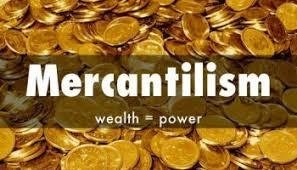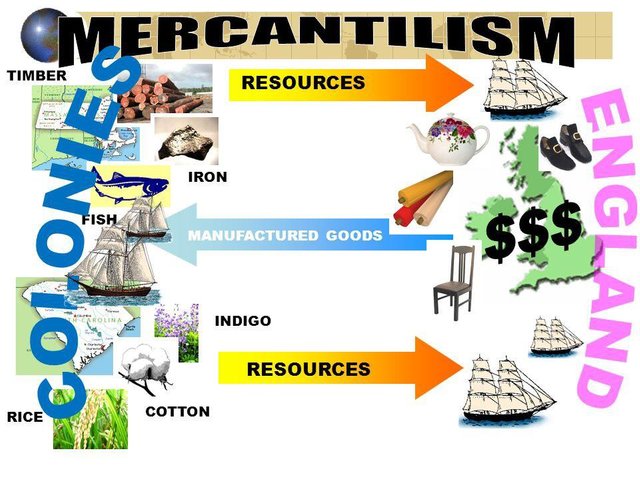
Mercantilism is a national economic policy designed to maximize the trade of a nation and, historically, to maximize the accumulation of gold and silver. Mercantilism was dominant in modernized parts of Europe from the 16th to the 18th centuries. before falling into decline, although some commentators argue that it is still practised in the economies of industrializing countries, in the form of neomercantilism.

It promotes governmental regulation of a nation's economy for the purpose of augmenting state power at the expense of rival national powers. Mercantilism includes a national economic policy aimed at accumulating monetary reserves through a positive balance-of-trade, especially of finished goods. Historically, such policies frequently led to war and also motivated colonial expansion.
Mercantilist theory varies in sophistication from one writer to another and has evolved over time. High tariffs, especially on manufactured goods, were an almost universal feature of mercantilist policy. With the efforts of supranational organizations such as the World Trade Organization to reduce tariffs globally, non-tariff barriers to trade have assumed a greater importance in neomercantilism.
Hi! I am a robot. I just upvoted you! I found similar content that readers might be interested in:
https://en.wikipedia.org/wiki/Mercantilism
Downvoting a post can decrease pending rewards and make it less visible. Common reasons:
Submit